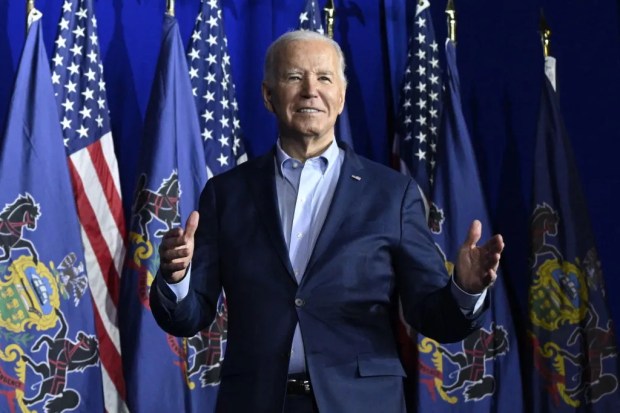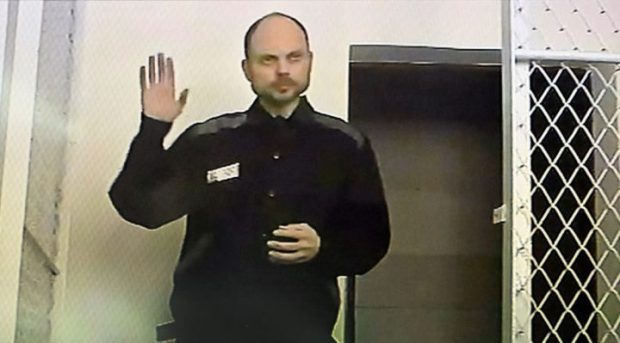The Online Safety Bill has been postponed. It should now be killed off for good. Not only is it bad for business, bad for free speech, and – by attacking encryption – bad for online safety, it now seems that there is a possibility, however remote, that the minister responsible for the bill doesn’t fully understand what it actually does.
After it was announced that the bill’s passage through parliament would be put on hold next week, leadership hopeful Kemi Badenoch welcomed the delay by describing the bill as being ‘in no fit state to become law’, adding that ‘we should not be legislating for hurt feelings.’ In response, up popped Boris ultra (and hopefully soon-to-be former) Culture Secretary Nadine Dorries, seething at the possible death of her only consequential piece of legislation.
‘Which part of the bill legislates for hurt feelings, Kem?’ asked Dorries. Well, I can answer that. It’s Part 10, ‘Communications Offences’, and in particular the subheading ‘Harmful communications offence’. This part of the bill makes it illegal to send a message causing ‘psychological harm amounting to at least serious distress’. In other words, hurt feelings.
‘Serious distress’ is not actually defined within the legislation; it will be left to judges to work out what it means. What we do know however is that it is a substantial regression on the limited free speech Britons already possess online.
Under the 2003 Communications Act, being offensive is already an offence, as indeed it can be under the 1988 Malicious Communications Act or the 1986 Public Order Act. These pieces of legislation are why people regularly find themselves hauled up in court for tasteless jokes forwarded on WhatsApp, and asked to explain to a grim-faced judge exactly what was so funny about them in the cold light of day.
These acts define the offence by the content of the message. The Online Safety Bill defines it by the effect on the recipient. This is an interesting approach from Dorries, who has previously ranted about the ‘left wing snowflakes’ who are ‘killing comedy’ and ‘suppressing free speech’; it isn’t particularly hard to see how the phrasing ‘serious distress’ could rapidly become rather more expansive than originally intended, particularly given the lack of guidance provided to judges.
But then again, that is the general approach taken by the bill. The entire ‘legal but harmful’ debacle arises from clauses which impose a duty on tech firms to censor material without actually banning it. Generally speaking, if you’re required to censor something, then it isn’t really legal to express it. Dorries defended these restrictions by claiming ‘encouraging others to take their own life is what comes under that definition’. As Conservative peer (and QC) David Wolfson has noted, that’s already illegal. We don’t need new legislation for that.
It is less than ideal that so many MPs seem to be unaware of exactly what a piece of legislation that sets out to redefine the internet actually contains. Labour MP Lucy Powell claimed that Kemi ‘obviously’ had ‘no idea how the bill will work nor why it’s needed’, and had ‘fully sniffed up some dodgy briefing from an ill-informed colleague’. It seems rather more likely that Kemi has read the legislation and the reams of public commentary from experts in the field, and formed her view accordingly.
Even if Dorries and Powell were correct there would still be plenty to dislike in the bill, from imposing huge costs on start-ups unable to bear the expense, to risking the banning of true end-to-end encryption through the backdoor. And yet despite near universal opposition from free speech advocates, business lobbyists, and privacy activists, there is relatively little opposition within parliament.
This is something of a red flag. There is more than a whiff of self-interest to this piece of legislation, a sense that rather than doing what’s best for the country, MPs are doing what’s best for themselves. Remember the Islamist murder of Sir David Amess? Remember also how the immediate response of MPs was to use his death to push for a faster timetable for the Online Safety Bill, tentatively renamed ‘David’s law’?
It’s tough being an MP online. People are rude, abusive, and sometimes threatening. But attempting to reshape the entire internet in an attempt to prevent this is not only damaging, but doomed to failure. The Online Safety Bill is a bad piece of legislation. It shouldn’t just be postponed, it should be killed off entirely.
Got something to add? Join the discussion and comment below.
Get 10 issues for just $10
Subscribe to The Spectator Australia today for the next 10 magazine issues, plus full online access, for just $10.




















Comments
Don't miss out
Join the conversation with other Spectator Australia readers. Subscribe to leave a comment.
SUBSCRIBEAlready a subscriber? Log in